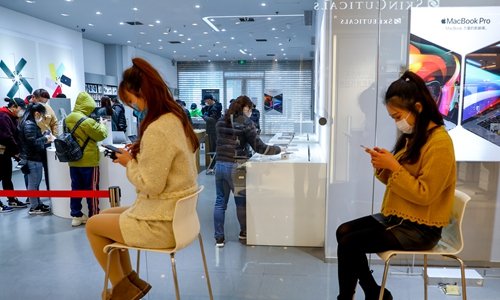China, a behemoth in the world of technological innovation, has entered a new era of stringent regulatory measures in its domestic app and mini-program sector. This is part of the nation’s broader move to optimize the registration and management procedures of these platforms and to address the challenges sprouting from the Internet’s vast expanse.
The Background: A Regulated Internet
In a world increasingly dominated by the internet, the expansion has brought about several challenges, not limited to online fraud and explicit content. This is where regulatory measures step in. China’s regulatory bodies view these measures as both a protective and proactive measure.
On Wednesday, WeChat, a prominent name in China’s app market, released a pivotal notice. Effective from September 1, mini programs within its ecosystem are mandated to register under the Internet Content Provider (ICP) system to continue their operations on WeChat. The significance? This registration aligns with national standards such as the Law on Combating Telecom and Online Fraud, along with the Internet Information Service Management Measures.
This strategic move followed a directive from China’s Ministry of Industry and Information Technology (MIIT). Just a day before the WeChat announcement, MIIT had declared that all homegrown app developers must adhere to a comprehensive registration process.
For those unfamiliar with the landscape of Chinese internet regulation, the ICP registration was initiated in 2000. In the subsequent two decades, this mechanism played a pivotal role, nurturing and shaping the trajectory of internet growth in China. But the dynamic nature of the digital realm means that apps, which have evolved into the primary vehicles of online content, now find themselves under similar regulatory spotlights as conventional websites. This means adhering to transparent practices such as registering developers’ genuine identities, their online resources, and services.
Xie Yongjiang Weighs In: The Need for Standardization
Amid these regulatory waves, voices from academia have echoed the sentiment of the regulatory bodies. Xie Yongjiang, an influential figure from the Internet Management and Legislation Research Center at Beijing University of Posts and Telecommunication, emphasized the transformations the digital space in China has witnessed. With the internet’s swift rise, apps and mini programs have proliferated, touching almost every facet of Chinese digital life.
For Xie, the call for action is clear. These platforms’ vast penetration necessitates a standardized and refined registration and management system. But why now? According to Xie, as the adoption rate of these platforms soared, issues began to emerge. Concerns ranging from the presence of gambling and telecom scams to inappropriate content within children’s educational apps have become prevalent. Xie advocates for rigorous registration and reviews, believing they are the remedy to curtail such challenges in the coming years.
However, the concerns aren’t limited to content alone. In a rapidly changing technological landscape marked by advances in big data and AI, concerns over the leakage of private information have emerged. Thus, the push for regulatory measures is also seen as a move to combat these modern challenges.
Existing Entities and the Road Ahead
While the spotlight is largely on new entrants, existing mini programs are not exempt. If they intend to continue their operations on platforms like WeChat, they too must comply with the new registration mandates. The deadline? March 2024. Any non-compliance post this period would result in these mini-programs facing a shutdown from April 1, 2024.
As per MIIT’s directive, app developers who ventured into the Chinese market before this regulatory announcement must register with their respective provincial-level communications authorities. This process will span from September 2023 to March 2024. An inspection phase will follow, slated for April-June 2024. MIIT’s message is unequivocal: developers who neglect to register within the stipulated timeframe will face legal repercussions.
Furthermore, MIIT’s notice underscored a pivotal aspect. App developers operating in niche sectors like journalism, publishing, education, film and television, and even religion aren’t exempt. While registering, they must furnish approval documentation from provincial-level communication administrations.
Conclusion: A Future of Structured Digital Growth
The digital landscape in China is undergoing a metamorphosis. On the one hand, technological advancements are propelling the nation forward. On the other, the need for structure, security, and standardization is becoming paramount.
These regulatory measures are not just bureaucratic protocols. They encapsulate China’s vision for a digital ecosystem that balances innovation with safety, growth with responsibility. Only time will tell how these regulations will shape the future of apps and mini programs in the country, but the message from regulatory bodies is clear: the future is structured, transparent, and secure.
Read More:
